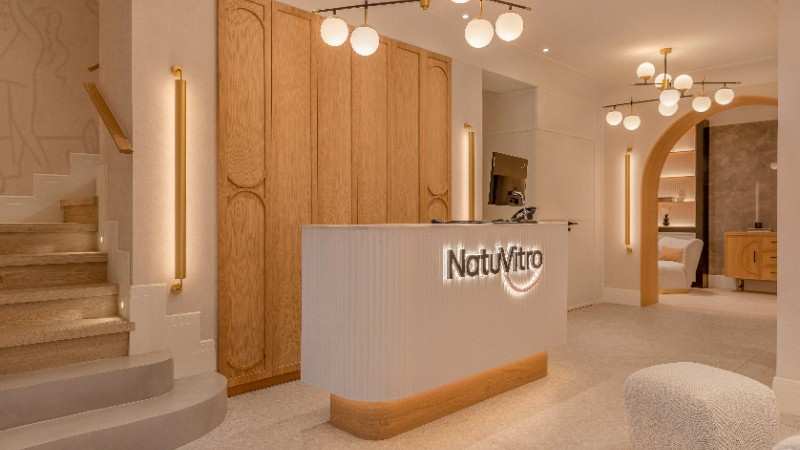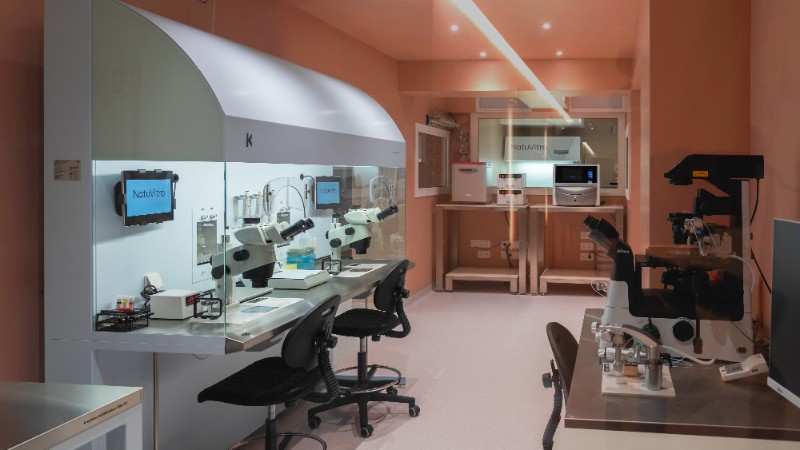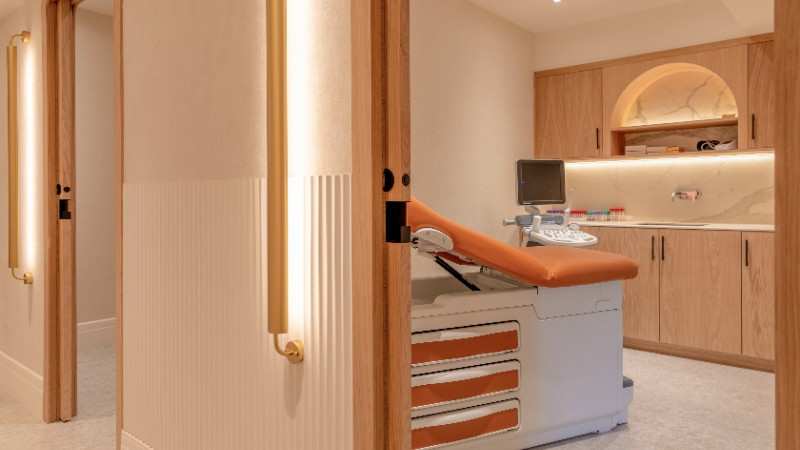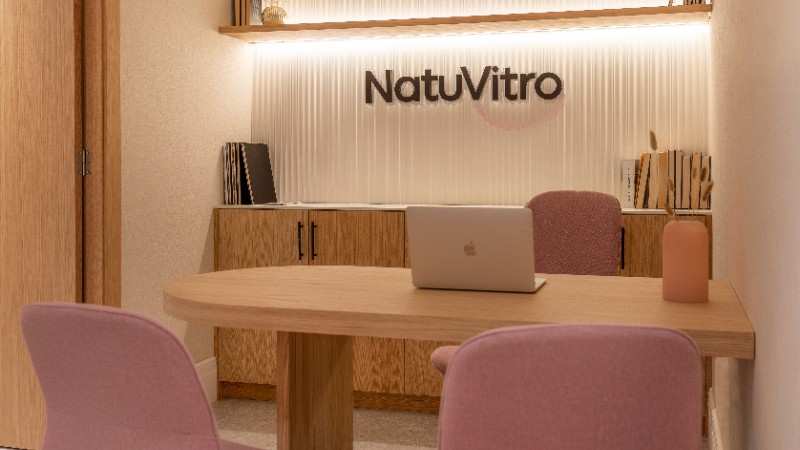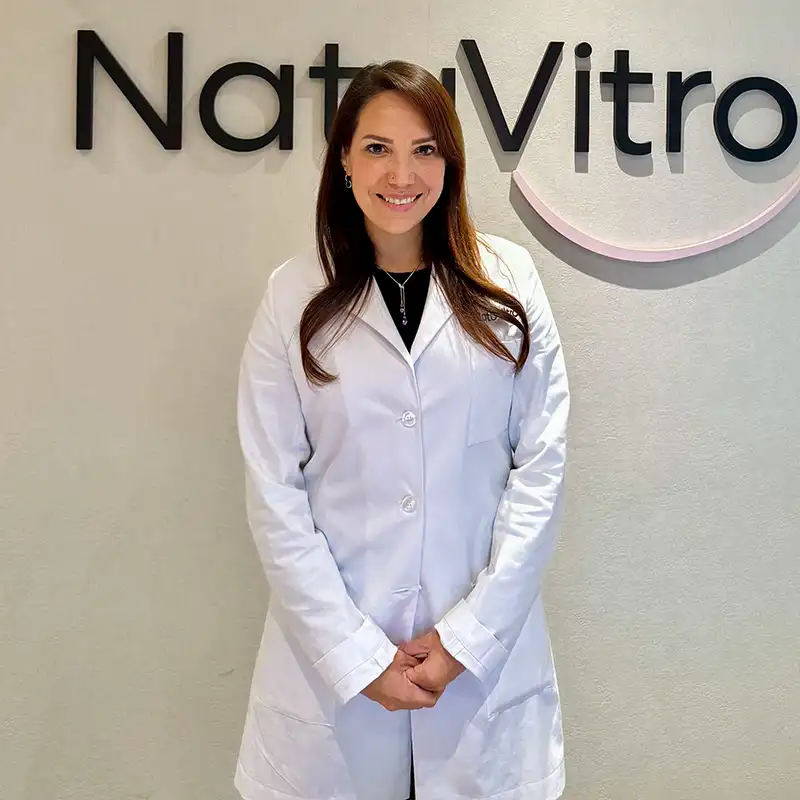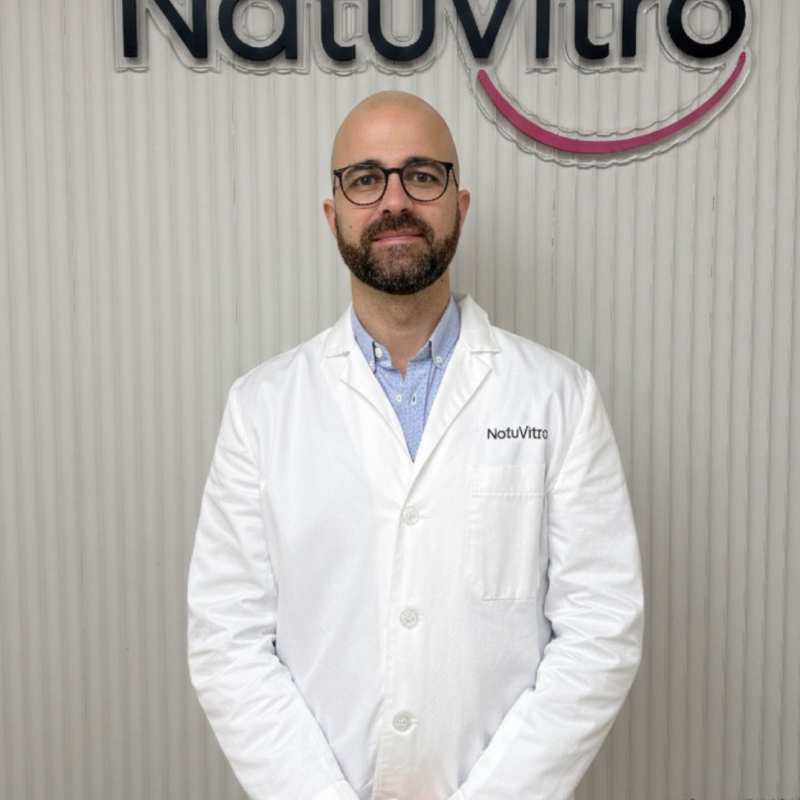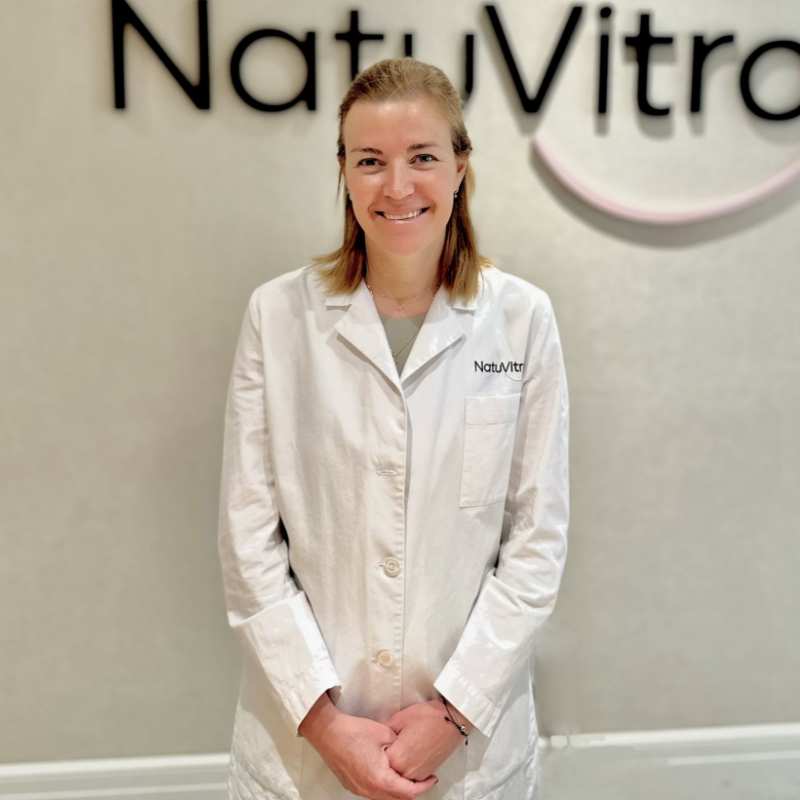
1. Researching Clinics in Spain
The first step of egg donation treatment requires meticulous research into various fertility clinics in Spain. The selection process should involve a comprehensive evaluation of clinics based on essential criteria to ensure a smooth and successful experience. Factors such as success rates, reputation, and patient testimonials play a pivotal role in making an informed decision.
Begin by looking into the overall reputation of the clinics, considering not only success rates but also the level of support and empathy provided to patients. Patient reviews and experiences can provide valuable insights into the clinic's commitment to individualized care.
It's crucial to explore the range of services offered by each clinic, from initial consultations to post-treatment support. Clinics that adhere to high medical standards, leverage advanced technology, and provide personalized treatment plans tend to stand out in the fertility landscape.
Throughout this exploration, strive to find a clinic that aligns seamlessly with your expectations for parenthood. Consider all aspects of the clinic's offerings and reputation to make an informed decision that best suits your unique journey toward achieving a successful egg donation treatment in Spain.
2. Initial Preparations in France
Before embarking on the egg donation treatment journey in Spain, French patients must navigate the initial preparations within their home country. Understanding the legal and ethical aspects of egg donation in France is paramount. French regulations regarding assisted reproductive technologies are stringent, and individuals considering treatment abroad must ensure compliance with these regulations.
Patients should familiarize themselves with the specific legal requirements, including the selection of an accredited clinic and adherence to French guidelines for gamete donation. Seeking advice from local fertility specialists or legal professionals can provide clarity on the legal landscape in France.
Additionally, potential recipients should be prepared for the emotional and psychological aspects of the egg donation process. Exploring counseling services and support groups can be beneficial in helping individuals cope with the complexities and emotional challenges associated with assisted reproduction.
By taking the time to thoroughly understand the legal and emotional aspects in France, patients can approach the subsequent stages of treatment in Spain with confidence and a clear understanding of their rights and responsibilities. This preparatory phase ensures a smoother transition into the egg donation process and contributes to a more informed and empowered patient experience.
3. Understanding the Egg Donation Process
The egg donation process is a nuanced journey involving critical steps that ensure the success and comfort of both the egg donor and the intended recipient. Upon selecting a clinic, the initial phase includes comprehensive medical and psychological assessments for both parties, evaluating their health, fertility, and emotional readiness.
Following the assessments, the next steps involve controlled ovarian stimulation for the egg donor to produce multiple eggs. It's important to note that cycles do not necessarily need to be synchronized; modern techniques allow for the convenient freezing of embryos. This flexibility enables recipients to undergo embryo transfer at a time that suits their schedule and circumstances.
Once the eggs are retrieved, fertilization occurs in the laboratory, and the resulting embryos undergo monitoring for quality. A select number of viable embryos are then cryopreserved or immediately transferred to the recipient's uterus.
Understanding these steps is pivotal for both donors and recipients. It facilitates informed decision-making and emphasizes the adaptability of the process to individual preferences and timelines. This approach enhances the overall experience, providing a level of convenience and control for those undertaking the egg donation treatment journey in Spain.
4. Required Tests in France and Spain
Navigating the egg donation process involves a series of crucial medical tests conducted primarily in Spain, though French patients can contribute relevant test results from their local gynecologists. This collaborative approach aims to streamline the process and ensure comprehensive assessments for both the intended recipient and the egg donor.
In France: Prospective recipients and donors in France are encouraged to engage with their local gynecologists for preliminary tests, such as blood work, hormonal assessments, and genetic screenings. These results, when applicable, can be shared with the chosen Spanish clinic, fostering a collaborative and efficient process.
In Spain: Upon selecting a clinic in Spain, there will be a continuation of medical assessments to establish a comprehensive understanding of the individuals involved. While the clinic may conduct additional tests based on its specific protocols, the integration of existing French test results ensures a holistic evaluation.
This approach not only respects the convenience of French patients but also leverages prior medical information. By combining test results from both countries, the process becomes more efficient, allowing for a smoother transition into the subsequent stages of the egg donation treatment. This cooperative strategy underscores the international collaboration inherent in assisted reproductive technologies.
5. Costs and Financial Considerations
When considering egg donation treatment in Spain, prospective French patients are often presented with various package options. Understanding the nuances of these packages is crucial, and we recommend a focus on guaranteed blastocysts for peace of mind throughout the process.
Package Options: Many clinics offer all-inclusive packages that encompass various stages of the egg donation process. It's common to find packages guaranteeing a specific number of eggs or, alternatively, a guaranteed number of blastocysts.
Why Choose Guaranteed Blastocysts: Opting for a package that ensures a guaranteed number of blastocysts provides patients with a clearer and more definitive outcome. Unlike a guaranteed number of eggs, which may not guarantee the development of viable embryos, the blastocyst stage represents a more advanced and critical milestone in embryo development. This approach minimizes uncertainties related to shared donor cycles or concerns about the developmental progress of assigned eggs.
Peace of Mind: By choosing a package with a guaranteed number of blastocysts, patients can experience greater peace of mind throughout the process. They can proceed with the assurance that the financial investment corresponds directly to a specified outcome – the attainment of blastocysts suitable for transfer.
Understanding these package distinctions is pivotal for making an informed decision that aligns with both the medical and emotional needs of the patient. A focus on guaranteed blastocysts provides clarity, transparency, and a sense of confidence as individuals embark on the transformative journey of egg donation treatment in Spain.
6. Time Frame for Each Step
Embarking on the egg donation journey in Spain involves a series of steps, each with its own timeframe. Understanding the expected duration of each stage is crucial for managing expectations and planning. While timelines can vary between individuals, clinics, and specific treatment plans, here's a general outline:
1. Initial Consultation:
- This typically marks the starting point, where the patient and the clinic discuss medical history, preferences, and establish a treatment plan.
2. Donor Matching:
- Once the patient is ready to proceed, the clinic initiates the process of matching the patient with a suitable egg donor. This stage can vary in duration based on donor availability and preferences.
3. Donor Stimulation and Egg Retrieval:
- The donor undergoes ovarian stimulation, and once mature eggs are ready, they are retrieved. This phase usually takes a few weeks.
4. Fertilization and Embryo Cultivation:
- After retrieving eggs, fertilization occurs in the laboratory. Embryos are monitored for development, with the goal of reaching the blastocyst stage. This stage may take around five to six days.
5. Transfer Preparation:
- If embryos develop successfully, the patient's uterus is prepared for embryo transfer. This phase involves hormonal medications and typically takes a couple of weeks.
6. Embryo Transfer:
- The transfer itself is a brief procedure, often taking place on a specific day within the menstrual cycle.
7. Waiting Period
- Following the embryo transfer, a waiting period ensues before pregnancy tests can confirm the outcome. This period is typically around two weeks.
It's crucial to acknowledge that the timeframe for each step in the egg donation process can vary significantly among clinics, impacting the overall duration of the journey. Opting for a clinic with a more human-centered approach, such as NatuVitro, can significantly reduce unnecessary delays and waiting times.
- Prompt Response and Scheduling: NatuVitro distinguishes itself by providing a prompt response to patient inquiries within 24 hours. This quick turnaround time ensures that patients receive timely information and support.
- First Appointment Convenience: Waiting lists can pose a significant challenge for patients seeking immediate assistance. NatuVitro addresses this concern by offering the first consultation appointment within a week, accommodating the patient's schedule and urgency.
- No Waiting List: Some large clinics with well-established reputations may have extensive waiting lists, delaying the commencement of the egg donation process. NatuVitro eliminates this concern by starting the process without imposing a waiting list, allowing for a more expedited and patient-centric experience.
- Streamlined Process: The commitment to responsiveness and efficiency at NatuVitro ensures that patients can move through each stage of the process with minimal delays. This streamlined approach is particularly beneficial for those who wish to avoid prolonged waiting periods.
Choosing a clinic with a personalized and attentive approach not only expedites the egg donation process but also provides a more considerate and supportive environment. NatuVitro's commitment to prompt communication, flexible scheduling, and a no-waiting-list policy underscores its dedication to prioritizing the needs and timelines of the patients it serves.
8. Success Rates and Expectations: Navigating the Realities
While success rates are often presented as key indicators, it's essential to approach these figures with a discerning eye. The publication of success rates by clinics may lack standardized oversight and regulations, leading to variations in reporting. As a result, patients are advised to delve beyond numerical data and consider additional factors in their decision-making process.
1. Varied Criteria:
- Clinics may report success rates based on diverse criteria, such as the age of the egg donor or the method of calculation. Understanding these nuances is crucial for interpreting the significance of reported figures accurately.
2. Lack of Oversight:
- Recognizing the absence of standardized oversight in success rate reporting is vital. Patients should be cautious not to naively rely on seemingly official success reports without considering the broader context.
3. Reputation and Patient Experiences:
- Instead of solely relying on numerical data, placing emphasis on a clinic's reputation and firsthand patient experiences is invaluable. Seeking testimonials and reviews from individuals who have undergone similar treatments provides real-world insights into the clinic's performance.
4. Realistic Expectations:
- Acknowledging that success rates are not guarantees is crucial. Patients should approach the decision-making process with realistic expectations, understanding that individual outcomes may vary.
5. Peer Support and Information Sharing:
- Engaging with support groups or forums where individuals share their experiences with specific clinics can offer valuable perspectives. Peers who have undergone similar journeys can provide insights into the clinic's strengths, weaknesses, and overall patient care.
In navigating the complexities of success rates, a comprehensive approach that considers reputation, patient testimonials, and realistic expectations is advised. By supplementing numerical data with qualitative information, patients can make more informed decisions about selecting a clinic for their egg donation journey in Spain.
9. NatuVitro's Technological and Environmental Advancements
NatuVitro stands out as a leader in reproductive medicine, offering patients not only advanced technological facilities but also a commitment to providing a supportive and environmentally friendly setting for the egg donation process.
1. Patient-Centric Approach:
- NatuVitro's commitment to a patient-centric approach ensures that treatment plans are tailored to individual needs. This personalized care, combined with advanced technology, contributes to a comprehensive and empathetic experience for each patient.
2. Efficient Scheduling:
- Recognizing the importance of time in the reproductive journey, NatuVitro offers efficient scheduling with no waiting list. Inquiries receive a response within 24 hours, and the first appointment is scheduled within a week, ensuring a timely initiation of the treatment process.
3. No Waiting List:
- NatuVitro distinguishes itself by eliminating waiting lists. This ensures that patients can commence their egg donation journey promptly, avoiding unnecessary delays and expediting the overall process.
4. Transparent Communication:
- NatuVitro values transparent communication, fostering an open dialogue between the medical team and patients. This commitment to clear and honest communication builds trust and ensures that patients are well-informed at every stage.
5. EmbryoScope Flex Incubator:
- NatuVitro takes pride in being the first clinic in Spain to incorporate the EmbryoScope Flex Incubator. This state-of-the-art technology offers continuous monitoring and real-time assessments of embryos. The controlled and stable conditions within this incubator contribute to improved success rates, providing embryos with an optimal environment for development.
6. Certified VOC-Free Lab:
- NatuVitro is home to the first certified Volatile Organic Compounds (VOC)-free laboratory in Spain. This unique environmental commitment ensures that embryos are nurtured in a space free from harmful substances, enhancing their chances of success. The VOC-free lab not only prioritizes the well-being of embryos but also underscores NatuVitro's dedication to creating a safe and sustainable environment for assisted reproductive procedures.
10. Comprehensive Support and Aftercare
Embarking on the egg donation journey demands more than just clinical procedures. A clinic's commitment to comprehensive support and aftercare significantly shapes the overall patient experience and contributes to the success of assisted reproductive processes.
1. Emotional and Psychological Support:
- Acknowledging the emotional challenges associated with assisted reproductive technologies, a clinic should prioritize providing robust emotional and psychological support. Recognizing the impact of the journey on mental well-being is crucial.
2. Counseling Services:
- Access to counseling services is vital, offering individuals and couples the necessary tools to cope with the complexities and emotional aspects of their reproductive journey.
3. Support Groups:
- Facilitating support groups creates a community for individuals with shared experiences. Connecting with others fosters a sense of camaraderie and understanding, allowing patients to navigate the journey with shared insights and encouragement.
4. Post-Treatment Guidance:
- A clinic's commitment to patient care should extend beyond treatment itself. Providing post-treatment guidance ensures that individuals are equipped with the necessary resources and information for the post-egg donation phase, facilitating a smooth transition.
5. Accessibility and Responsiveness:
- Ongoing communication and assistance are crucial components of comprehensive support. A clinic's accessibility and responsiveness contribute to a sense of reassurance and trust throughout the entire patient experience.
In selecting a clinic, it's essential to consider these aspects of comprehensive support and aftercare. A clinic that values emotional well-being, provides counseling services, facilitates support groups, offers post-treatment guidance, and remains accessible and responsive ensures a more holistic and positive experience for individuals on their family-building journey.
In this regard, clinics like NatuVitro exemplify a comprehensive approach, integrating these vital elements to support patients through every step of their egg donation journey.
A Holistic Approach to Egg Donation
Deciding to start the egg donation treatment is not easy! The decision-making process involves considerations beyond clinical procedures, encompassing crucial factors such as clinic selection, technological advancements, and ongoing support.
As prospective patients navigate the myriad options, it becomes evident that a comprehensive approach significantly enhances the overall experience. From personalized and efficient scheduling to cutting-edge technologies like the EmbryoScope Flex Incubator and a certified VOC-free lab, these elements contribute to the success of the assisted reproductive process.
Moreover, the significance of emotional and psychological support cannot be overstated. Counseling services, support groups, and post-treatment guidance form a crucial network that nurtures individuals through the complexities of the egg donation journey.
In conclusion, clinics that prioritize a patient-centric, technologically advanced, and emotionally supportive approach provide individuals with not just medical services but a holistic and empowering experience. While numerous clinics offer such comprehensive care, it's noteworthy that NatuVitro exemplifies these principles, ensuring that patients receive the highest standard of care throughout their entire journey towards building a family through egg donation in Spain. The clinic's commitment to efficiency, transparency, and ongoing support solidifies its position as a beacon for those seeking a well-rounded and positive reproductive experience.
Our experts are ready to examine your case history, clarify your choices, and address every question you have.
Don't wait to make informed decisions – your personalized guidance awaits!
- Spain (España)+34
- France (La France)+33
- Italy (Italia)+39
- United Kingdom+44
- United States+1
- Belgium (België)+32
- Switzerland (Schweiz/Suisse)+41
- Germany (Deutschland)+49
- Netherlands (Nederland)+31
- Afghanistan (افغانستان)+93
- Albania (Shqipëri)+355
- Algeria (الجزائر)+213
- American Samoa+1
- Andorra+376
- Angola+244
- Anguilla+1
- Antigua and Barbuda+1
- Argentina+54
- Armenia (Հայաստան)+374
- Aruba+297
- Ascension Island+247
- Australia+61
- Austria (Österreich)+43
- Azerbaijan (Azərbaycan)+994
- Bahamas+1
- Bahrain (البحرين)+973
- Bangladesh (বাংলাদেশ)+880
- Barbados+1
- Belarus (Беларусь)+375
- Belize+501
- Benin (Bénin)+229
- Bermuda+1
- Bhutan (འབྲུག)+975
- Bolivia+591
- Bosnia and Herzegovina (Босна и Херцеговина)+387
- Botswana+267
- Brazil (Brasil)+55
- British Indian Ocean Territory+246
- British Virgin Islands+1
- Brunei+673
- Bulgaria (България)+359
- Burkina Faso+226
- Burundi (Uburundi)+257
- Cambodia (កម្ពុជា)+855
- Cameroon (Cameroun)+237
- Canada+1
- Cape Verde (Kabu Verdi)+238
- Caribbean Netherlands+599
- Cayman Islands+1
- Central African Republic (République centrafricaine)+236
- Chad (Tchad)+235
- Chile+56
- China (中国)+86
- Christmas Island+61
- Cocos (Keeling) Islands+61
- Colombia+57
- Comoros (جزر القمر)+269
- Congo (DRC) (Jamhuri ya Kidemokrasia ya Kongo)+243
- Congo (Republic) (Congo-Brazzaville)+242
- Cook Islands+682
- Costa Rica+506
- Côte d’Ivoire+225
- Croatia (Hrvatska)+385
- Cuba+53
- Curaçao+599
- Cyprus (Κύπρος)+357
- Czech Republic (Česká republika)+420
- Denmark (Danmark)+45
- Djibouti+253
- Dominica+1
- Dominican Republic (República Dominicana)+1
- Ecuador+593
- Egypt (مصر)+20
- El Salvador+503
- Equatorial Guinea (Guinea Ecuatorial)+240
- Eritrea+291
- Estonia (Eesti)+372
- Eswatini+268
- Ethiopia+251
- Falkland Islands (Islas Malvinas)+500
- Faroe Islands (Føroyar)+298
- Fiji+679
- Finland (Suomi)+358
- French Guiana (Guyane française)+594
- French Polynesia (Polynésie française)+689
- Gabon+241
- Gambia+220
- Georgia (საქართველო)+995
- Ghana (Gaana)+233
- Gibraltar+350
- Greece (Ελλάδα)+30
- Greenland (Kalaallit Nunaat)+299
- Grenada+1
- Guadeloupe+590
- Guam+1
- Guatemala+502
- Guernsey+44
- Guinea (Guinée)+224
- Guinea-Bissau (Guiné Bissau)+245
- Guyana+592
- Haiti+509
- Honduras+504
- Hong Kong (香港)+852
- Hungary (Magyarország)+36
- Iceland (Ísland)+354
- India (भारत)+91
- Indonesia+62
- Iran (ایران)+98
- Iraq (العراق)+964
- Ireland+353
- Isle of Man+44
- Israel (ישראל)+972
- Italy (Italia)+39
- Jamaica+1
- Japan (日本)+81
- Jersey+44
- Jordan (الأردن)+962
- Kazakhstan (Казахстан)+7
- Kenya+254
- Kiribati+686
- Kosovo+383
- Kuwait (الكويت)+965
- Kyrgyzstan (Кыргызстан)+996
- Laos (ລາວ)+856
- Latvia (Latvija)+371
- Lebanon (لبنان)+961
- Lesotho+266
- Liberia+231
- Libya (ليبيا)+218
- Liechtenstein+423
- Lithuania (Lietuva)+370
- Luxembourg+352
- Macau (澳門)+853
- North Macedonia (Македонија)+389
- Madagascar (Madagasikara)+261
- Malawi+265
- Malaysia+60
- Maldives+960
- Mali+223
- Malta+356
- Marshall Islands+692
- Martinique+596
- Mauritania (موريتانيا)+222
- Mauritius (Moris)+230
- Mayotte+262
- Mexico (México)+52
- Micronesia+691
- Moldova (Republica Moldova)+373
- Monaco+377
- Mongolia (Монгол)+976
- Montenegro (Crna Gora)+382
- Montserrat+1
- Morocco (المغرب)+212
- Mozambique (Moçambique)+258
- Myanmar (Burma) (မြန်မာ)+95
- Namibia (Namibië)+264
- Nauru+674
- Nepal (नेपाल)+977
- New Caledonia (Nouvelle-Calédonie)+687
- New Zealand+64
- Nicaragua+505
- Niger (Nijar)+227
- Nigeria+234
- Niue+683
- Norfolk Island+672
- North Korea (조선 민주주의 인민 공화국)+850
- Northern Mariana Islands+1
- Norway (Norge)+47
- Oman (عُمان)+968
- Pakistan (پاکستان)+92
- Palau+680
- Palestine (فلسطين)+970
- Panama (Panamá)+507
- Papua New Guinea+675
- Paraguay+595
- Peru (Perú)+51
- Philippines+63
- Poland (Polska)+48
- Portugal+351
- Puerto Rico+1
- Qatar (قطر)+974
- Réunion (La Réunion)+262
- Romania (România)+40
- Russia (Россия)+7
- Rwanda+250
- Saint Barthélemy+590
- Saint Helena+290
- Saint Kitts and Nevis+1
- Saint Lucia+1
- Saint Martin (Saint-Martin (partie française))+590
- Saint Pierre and Miquelon (Saint-Pierre-et-Miquelon)+508
- Saint Vincent and the Grenadines+1
- Samoa+685
- San Marino+378
- São Tomé and Príncipe (São Tomé e Príncipe)+239
- Saudi Arabia (المملكة العربية السعودية)+966
- Senegal (Sénégal)+221
- Serbia (Србија)+381
- Seychelles+248
- Sierra Leone+232
- Singapore+65
- Sint Maarten+1
- Slovakia (Slovensko)+421
- Slovenia (Slovenija)+386
- Solomon Islands+677
- Somalia (Soomaaliya)+252
- South Africa+27
- South Korea (대한민국)+82
- South Sudan (جنوب السودان)+211
- Spain (España)+34
- Sri Lanka (ශ්රී ලංකාව)+94
- Sudan (السودان)+249
- Suriname+597
- Svalbard and Jan Mayen+47
- Sweden (Sverige)+46
- Syria (سوريا)+963
- Taiwan (台灣)+886
- Tajikistan+992
- Tanzania+255
- Thailand (ไทย)+66
- Timor-Leste+670
- Togo+228
- Tokelau+690
- Tonga+676
- Trinidad and Tobago+1
- Tunisia (تونس)+216
- Turkey (Türkiye)+90
- Turkmenistan+993
- Turks and Caicos Islands+1
- Tuvalu+688
- U.S. Virgin Islands+1
- Uganda+256
- Ukraine (Україна)+380
- United Arab Emirates (الإمارات العربية المتحدة)+971
- Uruguay+598
- Uzbekistan (Oʻzbekiston)+998
- Vanuatu+678
- Vatican City (Città del Vaticano)+39
- Venezuela+58
- Vietnam (Việt Nam)+84
- Wallis and Futuna (Wallis-et-Futuna)+681
- Western Sahara (الصحراء الغربية)+212
- Yemen (اليمن)+967
- Zambia+260
- Zimbabwe+263
- Åland Islands+358
Visit our clinic
Location
Call us now
Leave a message
